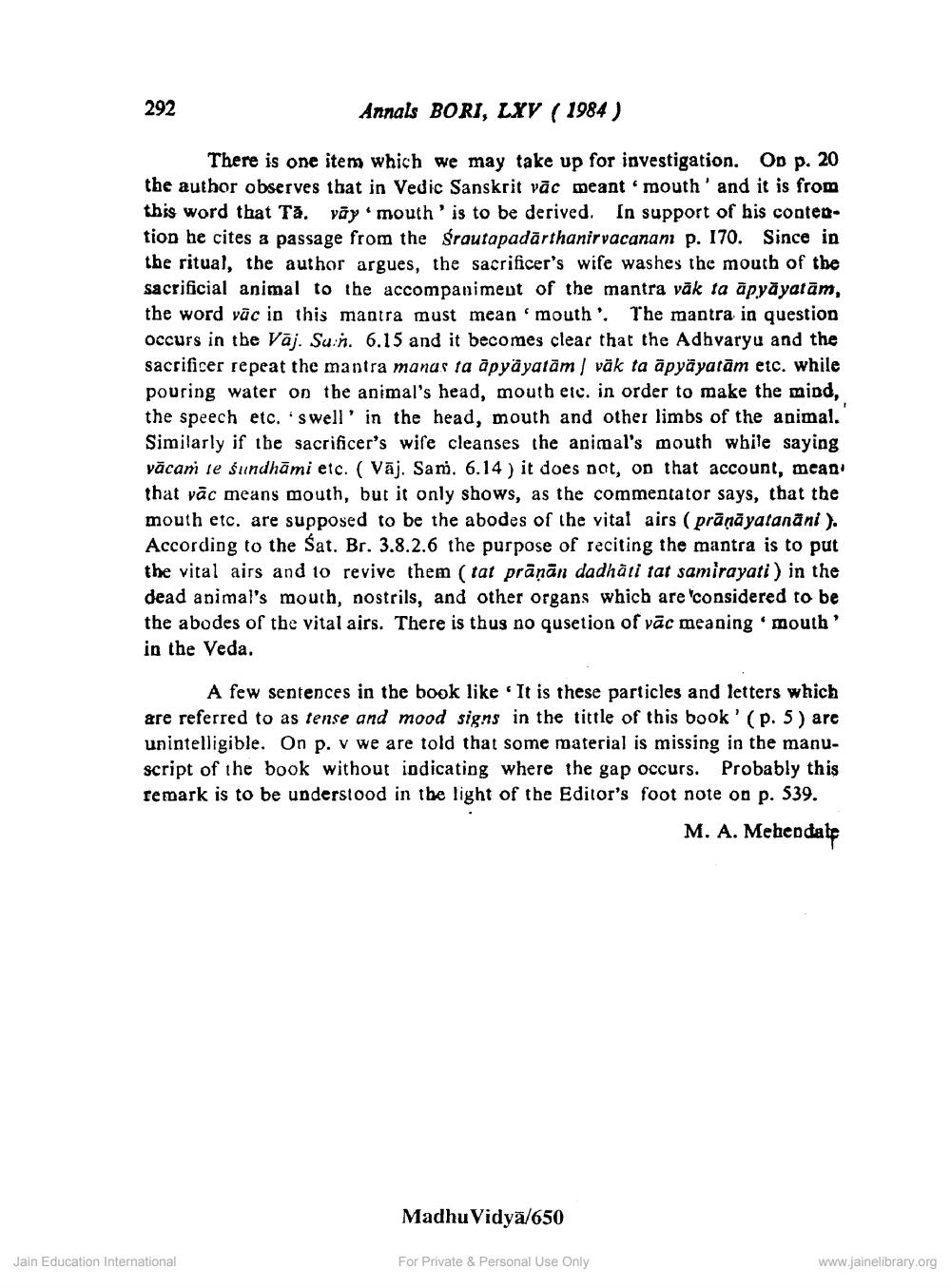________________
292
Annals BORI, LXV (1984)
There is one item which we may take up for investigation. Op p. 20 the author observes that in Vedic Sanskrit vāc meantmouth' and it is from this word that Ta. vãy mouth' is to be derived. In support of his contention he cites a passage from the Srautapadārthanir vacanam p. 170. Since in the ritual, the author argues, the sacrificer's wife washes the mouth of the sacrificial animal to the accompaniment of the mantra vāk ta āpyāyatām, the word vāc in this mantra must mean mouth'. The mantra in question occurs in the Vāj. Su:n. 6.15 and it becomes clear that the Adhvaryu and the sacrificer repeat the mantra manas ta āpyāyatām, vāk ta āpyāyarām etc. while pouring water on the animal's head, mouth etc. in order to make the mind, the speech etc. 'swell' in the head, mouth and other limbs of the animal. Similarly if the sacrificer's wife cleanses the animal's mouth while saying vācam le sundhāmi etc. ( Vāj. Sam. 6.14 ) it does not, on that account, mean that vāc means mouth, but it only shows, as the commentator says, that the mouth etc. are supposed to be the abodes of the vital airs (prānāyatanäni) According to the Sat. Br. 3.8.2.6 the purpose of reciting the mantra is to put the vital airs and to revive them (tat prāṇān dadhāti tat samirayati) in the dead animal's mouth, nostrils, and other organs which are considered to be the abodes of the vital airs. There is thus no qusetion of vāc meaning' mouth' in the Veda.
A few sentences in the book like. It is these particles and letters which are referred to as tense and mood signs in the tittle of this book' (p.5) are unintelligible. On p. v we are told that some material is missing in the manuscript of the book without indicating where the gap occurs. Probably this remark is to be understood in the light of the Editor's foot note on p. 539.
M. A. Mebendale
Madhu Vidyā/650
Jain Education International
For Private & Personal Use Only
www.jainelibrary.org




